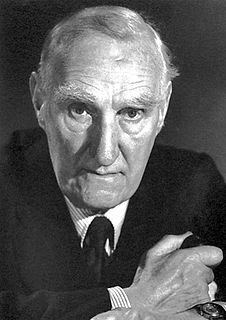A Quote by Chet Raymo
The new advocates of ID [Intelligent Design] ask that their ideas be judged by scientific, not religious, criteria. OK, let's see how well ID stacks up as a scientific alternative to Darwinism. To gauge how well ID is doing as a platform for scientific research, I logged into the best database of the biological literature. A search for keyword ''evolution'' yielded 24,000 hits in the last decade. A search for ''intelligent design'' yielded not a single piece of research. Evolution by natural selection remains the basis of every successful biological research program.
Quote Topics
Alternative
Ask
Basis
Best
Biological
Criteria
Darwinism
Database
Decade
Design
Doing
Every
Evolution
Gauge
Hits
How
ID
Ideas
Intelligent
Intelligent Design
Judged
Last
Last Decade
Literature
Natural
Natural Selection
New
OK
Piece
Platform
Program
Religious
Remains
Research
Scientific
Scientific Research
Search
See
Selection
Single
Successful
Up
Well
Related Quotes
My colleague Sen. Rick Santorum, Pennsylvania Republican, erroneously suggested that I support the teaching of intelligent design as an alternative to biological evolution. That simply is not true. ... Unlike biological evolution, intelligent design is not a genuine scientific theory and, therefore, has no place in the curriculum of our nation's public school science classes.
The first point one has to get straight in discussions like this, is that ID is not the opposite of evolution. Rather, it is the opposite of Darwinism, which says life evolved by an utterly unguided, undirected mechanism. If god directed the process of evolution, or rigged the universe to produce complex life, then that is not Darwinism - it is intelligent design.
If you search the scientific literature on evolution, and if you focus your search on the question of how molecular machines - the basis of life - developed, you find an eerie and complete silence. The complexity of life's foundation has paralyzed science's attempt to account for it; molecular machines raise an as-yet-impenetrable barrier to Darwinism's universal reach.
The technological overflow from scientific research has brought scientific research this bad name about carrying an irresponsibility and an alienation from God - because scientific research has led to things like the atom bomb, it's led to problems with depletion of ozone in the Earth's atmosphere, or at least it's revealed those problems.
The great scientific achievements are research programmes which can be evaluated in terms of progressive and degenerative problemshifts; and scientific revolutions consist of one research programme superceding (overtaking in progress) another. This methodology offers a new rational reconstruction of science.
Even though their arguments did not invoke religion, I think we all know what's behind these arguments. They're trying to protect religious beliefs from contradiction by science. They used to do it by prohibiting teachers from teaching evolution at all; then they wanted to teach intelligent design as an alternative theory; now they want the supposed "weaknesses" in evolution pointed out. But it's all the same program - it's all an attempt to let religious ideas determine what is taught in science courses.
Knowledge acquired in biological research is seldom directly applicable to human beings ... The results of scientific research, obtained under these conditions, cannot be applied directly to human beings who vary widely in their hereditary make-up, in their environment, and in their past health record.
In evolution, as in all areas of science, our knowledge is incomplete. But the entire success of the scientific enterprise has depended on an insistence that these gaps be filled by natural explanations, logically derived from confirmable evidence. Because "intelligent design" theories are based on supernatural explanations, they can have nothing to do with science.
To be sure, Darwin's theory of evolution is imperfect. However, the fact that a scientific theory cannot yet render an explanation on every point should not be used as a pretext to thrust an untestable alternative hypothesis grounded in religion into the science classroom or to misrepresent well-established scientific propositions.




































